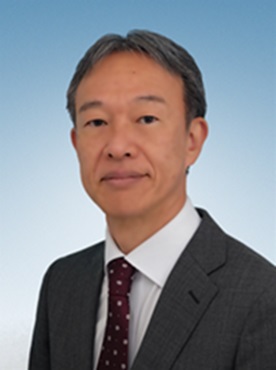I assumed the position of Chief Representative of JICA Thailand Office in March 2025.
The relationship between Japan and Thailand through development cooperation has a long history, beginning in 1954 when Japan accepted 21 Thai trainees. In 2024, we marked the 70th anniversary of development cooperation with Thailand. Today, Bangkok, which has evolved into a modern city, owes 70% of its water supply and 25% of its urban rail system to the support provided by Japan’s development cooperation. Japan’s contributions to development cooperation have played a significant role in improving the lives of people and fostering the growth of Thailand. Furthermore, in the transformation of Thailand’s eastern coastal region, major infrastructure projects such as the Laem Chabang Port and industrial parks were financed with yen loans, leading to the formation of an industrial hub that drives the country’s economy. This has also served as a catalyst for foreign investments, including those from Japanese companies.

In the meanwhile, Thailand’s nominal GDP stands at 514.8 billion USD (2023), making it the second-largest economy in ASEAN and the largest middle-income country in the Mekong region. However, it is facing the “middle-income trap” due to factors such as a declining working-age population caused by low birthrates and an aging society, as well as stagnating labor productivity. Additionally, Thailand faces many challenges in ensuring sustainable development, including responding to climate change and flood vulnerability, addressing income disparities between Bangkok and rural areas, and dealing with the rapid aging of its population, which is progressing even faster than in Japan.
The long history of cooperation between Japan and Thailand, along with the result of both soft and hard cooperation developed over time, and the trust built through this, have contributed to the good bilateral relationship between Japan and Thailand, as well as the formation of a pro-Japan sentiment among the Thai people. Going forward, we at JICA consider it our mission to continue supporting Thailand’s sustainable development through development cooperation, while also strengthening the multi-layered relationship between Thailand and Japan.
As Thailand has progressed in its development, the relationship between Japan and Thailand has deepened and evolved, becoming a relationship of strong mutual learning and enjoying the shared benefits of cooperation. In recent years, Thailand has been seeking to join the OECD (Organization of Economic Co-operation and Development), marking a stage where it has established itself as a responsible middle-income country in the international community. In terms of development cooperation, Thailand has become both a beneficiary of aid and a trusted partner in assisting neighboring countries, particularly in the Mekong region and ASEAN, alongside Japan.
In recent years, Japan’s role in development cooperation has also evolved. With the revision of Japan’s Development Cooperation Charter in 2023, the focus has expanded beyond traditional aid for recipient countries to include regional stability and co-creation, learning together and sharing the outcomes for the broader international benefit, including other countries and regions, including Japan. Many developing countries in ASEAN, which has strong ties with Japan, are now middle-income nations facing advanced challenges. In this context, in Thailand, which is a front-runner in development, we aim to build new relationships through development cooperation while leveraging the trust developed through our long history of cooperation. We will continue to contribute to the region in cooperation with our partners in Japan and abroad.
March 2025
Shunsuke Sakudo
Chief Representative, JICA Thailand Office





scroll